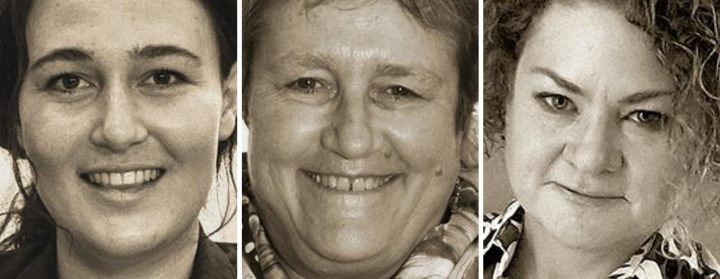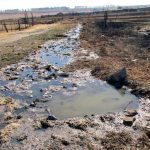DAILY MAVERICK WEBINAR
Climate change should factor in the 2024 election as El Niño heads SA’s way

Science writer Leonie Joubert and climatology professor Coleen Vogel joined Our Burning Planet journalist Julia Evans in an invigorating discussion on how we can leverage the skills, knowledge and resilience we have as South Africans to prepare ourselves and our cities for the upcoming El Niño cycle, and all climate events that are likely to become more complex and threatening under climate change.
“My son always jokes, one day we’ll [visit you] in the old age home, and I’ll say, so did we finally create robust systems?” said Prof Coleen Vogel, a climatologist from the Global Change Institute at Wits University during a Daily Maverick webinar last week.
“But we’ve got to keep on going, right? Despite all the challenges that we have.”
Vogel, whose research has a particular focus on disaster risk reduction and climate variability, and who was a key contributor to the writing of the Green and White Papers on South African Disaster Management, was speaking about creating disaster risk reduction systems in the face of extreme weather events that are increasing in frequency and intensity under climate change.
Vogel was joined by science writer Leonie Joubert, who has nearly 25 years of experience writing about climate change and food security issues, to discuss how the upcoming weather phenomenon, El Niño, would impact SA cities and how best we can prepare.
El Niño and its opposite, La Niña – Spanish for “little boy” and “little girl” – are opposing weather patterns that originate in the Pacific Ocean and have global effects that typically run in a three to seven-year cycle.
Read more in Daily Maverick: Here comes El Niño – and experts warn South Africa to ‘be prepared for the worst
South Africa is coming out of a three-year La Niña cycle, which is typically the “wetter” period for SA, and this summer it is predicted we will see the effects of El Niño, the “dryer” period.
“When this warm, moist air starts to rise into the atmosphere – very far away from us – what goes up must come down,” said Vogel, one of the lead authors of the African chapters in multiple Intergovernmental Panel on Climate Change reports.
“And, unfortunately for us in South Africa, when some of that air comes down, it tends to dry out. And so we can get drought periods.”
Joubert, who has spent 20 years speaking with communities vulnerable to these impacts, explained that while El Niño seasons usually mean higher temperatures and overall drought conditions across the summer rainfall regions of southern Africa, extreme rain events – rain “bombs” – can still occur. This can result in flooding, the likes of which were seen in Durban in April 2019, an El Niño year, and repeated even more severely in April 2022, a La Niña year.
Joubert highlighted how, with the Durban floods, the historical inequalities of apartheid spatial planning mean that much of SA’s built environment is not set up to withstand these climate events.
“The poorest people have usually been pushed into the most marginal areas. And with informality, people are forced to build in very high-risk areas like floodplains. And this perpetuates the inequality,” said Joubert.
She said that, as with many extreme weather events, we can anticipate them and prepare.
In the case of the 2022 Durban floods, “The flooding was extreme, but it wasn’t unprecedented,” said Joubert.
“What made this incredibly damaging was that these rain bombs were hitting this very specific landscape. So there’s a huge amount to be learned from this. Cities need to be more resilient against these kinds of flood events.”
Compassion fatigue
Both Vogel and Joubert have worked in the climate space for over two decades, and despite the slow nature of climate change, they believe we are running out of time.
“The window is closing,” said Vogel. “But how do we move the gears without making people feel frightened?”
Vogel added: “How do we put this onto the table through education, through outreach, advocacy, journalism, whatever we can?”
“I’ve been working with the youth and it’s amazing how entrepreneurial they are… this can turn into skills development and create jobs.
Joubert agreed: “If we can figure out how to shift the public discourse constantly, by bringing the stories in, we can start to leverage – and then 2024 becomes a climate issue.” She was responding to a question by an audience member of the webinar about how we can make the climate issue a factor in the 2024 election.
“We just have to keep talking,” continued Joubert. “If I think of how much the discourse has shifted in the past 20 years – not nearly enough – but I think we have reached a tipping point.
“This is why I still get out of bed every day, because I have conversations like this, where I start to see things change.” DM





















 Become an Insider
Become an Insider
Comments - Please login in order to comment.